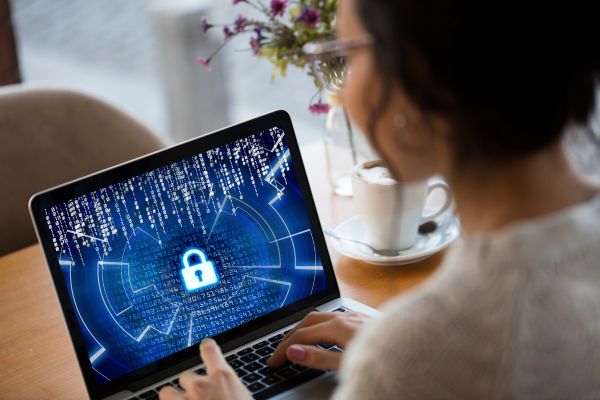In today’s interconnected world, the internet has become an integral part of daily life. From social media to online banking, nearly every aspect of our lives now relies on digital platforms. With this increased convenience comes an ever-growing need for heightened security. Personal cybersecurity tips have never been more critical, as cybercriminals constantly develop new strategies to exploit vulnerabilities. Whether you are a casual internet user or someone who depends on digital tools for work and communication, understanding how to protect yourself online is essential.
Understanding the Importance of Personal Cybersecurity
Cybersecurity is not just a concern for large organizations or tech-savvy individuals. Every person who uses the internet is a potential target for cyber threats. Hackers and scammers exploit weaknesses in digital systems to steal personal information, financial data, or even identities. A single weak password or unsecure Wi-Fi connection can open the door to devastating consequences. This is why adopting effective personal cybersecurity tips should be a priority for anyone looking to safeguard their digital presence.
The rise in phishing attacks, malware, and ransomware demonstrates that no one is immune. Many people underestimate their value to hackers, assuming only businesses or wealthy individuals are at risk. However, personal data such as email addresses, phone numbers, and login credentials can be sold on the dark web, making everyone a potential victim.
Strengthening Password Security for Better Protection
One of the simplest yet most overlooked personal cybersecurity tips is creating strong and unique passwords. Passwords act as the first line of defense against unauthorized access to your accounts. Using easily guessable passwords such as “123456” or “password” is akin to leaving your front door unlocked. Instead, opt for complex passwords that include a combination of uppercase and lowercase letters, numbers, and special characters.
It is equally important to avoid using the same password across multiple accounts. If a hacker gains access to one account, they can attempt the same credentials on other platforms, a tactic known as credential stuffing. To manage multiple strong passwords, consider using a reputable password manager. This tool securely stores your credentials and generates complex passwords that you don’t have to memorize.
Keeping Software Updated to Prevent Exploits
Outdated software often contains security flaws that hackers can exploit. Cybercriminals frequently target systems running older versions of operating systems, browsers, and applications. Keeping your software up to date is one of the most effective personal cybersecurity tips to block such attacks.
Enable automatic updates whenever possible to ensure that security patches are applied as soon as they are released. This proactive approach minimizes your exposure to known vulnerabilities and helps maintain the integrity of your devices.
Securing Your Internet Connection and Devices
Public Wi-Fi networks may seem convenient, but they are notorious for being breeding grounds for cyberattacks. Hackers can intercept data transmitted over unsecured networks, potentially gaining access to sensitive information like passwords and credit card numbers. To mitigate this risk, avoid accessing personal accounts or conducting financial transactions on public Wi-Fi.
For additional security, use a virtual private network (VPN) when connecting to the internet. A VPN encrypts your data, making it much harder for hackers to eavesdrop on your online activities. Alongside this, ensure your home Wi-Fi network is protected with a strong password and WPA3 encryption to keep intruders at bay.
Recognizing and Avoiding Phishing Attempts
Phishing remains one of the most common tactics cybercriminals use to deceive individuals into revealing confidential information. These scams often arrive in the form of emails or messages that appear to come from trusted sources. They may prompt you to click on malicious links, download infected attachments, or provide login credentials.
Being able to recognize the signs of phishing is crucial. Look out for red flags such as poor grammar, urgent requests for action, and unfamiliar sender addresses. When in doubt, verify the legitimacy of the communication by contacting the organization directly through official channels rather than using the provided contact information.
Practicing Good Digital Hygiene Daily
Personal cybersecurity tips are only effective if practiced consistently. Cultivating good digital hygiene means being mindful of your actions online and maintaining habits that reduce risk. This includes logging out of accounts when not in use, avoiding suspicious websites, and limiting the amount of personal information shared on social media.
Regularly backing up your data is another vital practice. In the event of a ransomware attack or system failure, having copies of your files stored securely can save you from significant loss and disruption.
Embracing Multi-Factor Authentication for Added Security
Multi-factor authentication (MFA) provides an extra layer of security by requiring more than just a password to access your accounts. This could include a one-time code sent to your phone, a fingerprint scan, or a hardware security key. Even if your password is compromised, MFA significantly reduces the chances of unauthorized access.
Most major online services now offer this feature, and enabling it wherever possible is a highly recommended personal cybersecurity tip.
Staying Informed About Emerging Threats
The digital landscape is constantly evolving, and so are cyber threats. Staying informed about the latest cybersecurity developments helps you adapt your defenses accordingly. Following trusted cybersecurity blogs, news outlets, and official advisories can keep you up to date with emerging risks and best practices.
Awareness is your first line of defense. The more knowledgeable you are about how cyberattacks occur, the better equipped you will be to avoid falling victim to them.
A Final Word on Staying Safe Online
Protecting yourself in the digital world requires more than a one-time effort; it is an ongoing process. By following these personal cybersecurity tips and remaining vigilant, you can significantly reduce your risk of falling prey to cybercriminals. As technology continues to advance, so too must your commitment to staying secure.
Remember, cybersecurity is not just about protecting devices—it’s about safeguarding your identity, privacy, and peace of mind. Start implementing these strategies today to enjoy a safer and more confident online experience.

